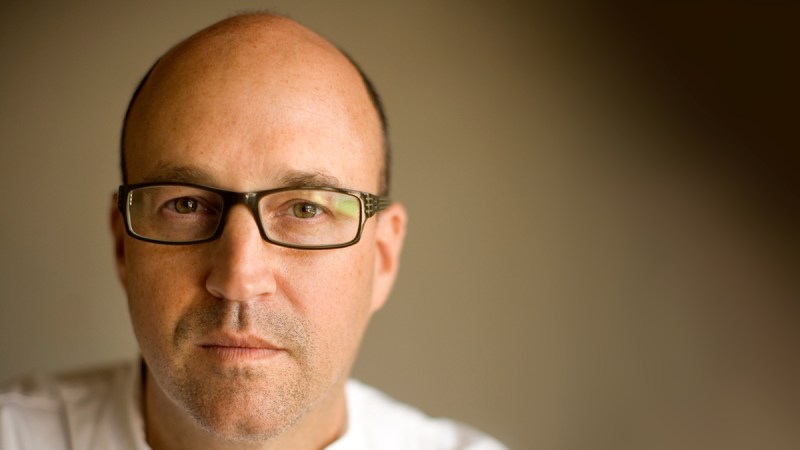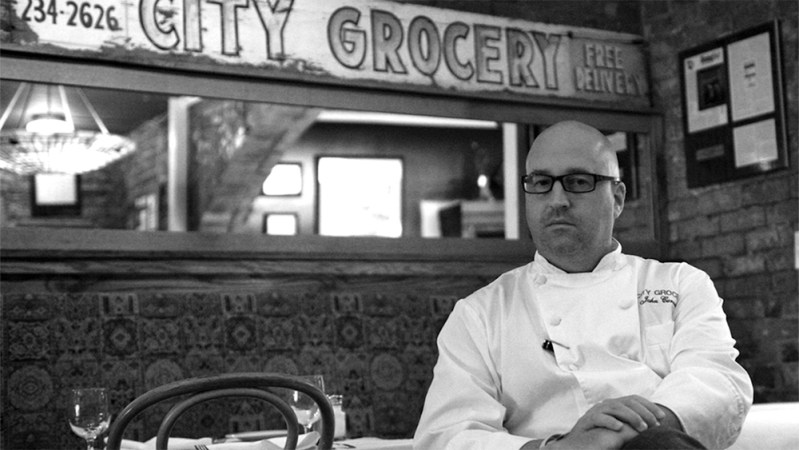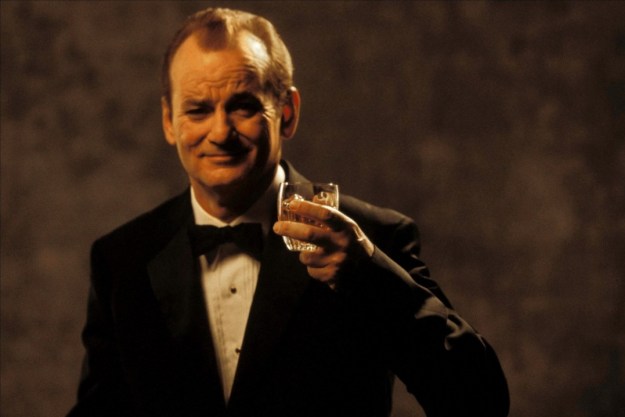
In between all this winning and restauranteuring, Currence also found time to start Move On Up Mississippi, which helps combat childhood obesity. According to 2011 stats, almost 14% of 2-4 year-olds are obese and 21.7% of 10-17 year-olds are obese, with 18% of high-schoolers qualifying as obese. Progress has absolutely been made statewide to reduce obesity rates, but Chef Currence has his work cut out for him.
He talks to us about his work and the obesity epidemic.
Why do you think some states have higher rates of obesity than others?
There’s a direct correlation between obesity and poverty. In areas where there is a weighted demographic of less affluent individuals, the obesity rate is always higher. Mississippi is at the bottom of this scale, having the highest rates of childhood obesity, and right on par with the statistics.
As someone who works in the food industry, I find it to be a disturbing trend. “Big foods,” or cheap processed foods and the worst of the fast foods, are meant to be delivered as quickly and inexpensively as possible. They’ve made the foods that are the worst for us as a population the cheapest and most accessible. Take McDonald’s for instance, which uses soy bean and corn enriched meats for their burgers alongside other low quality ingredients to deliver the cheapest products available. As a result, we see a certain segment of the population steering directly towards those things because they’re inexpensive and require the least effort to get a hold of and consume. Unfortunately, they also have the most catastrophic effects on our health.
What is the impact of having an obese population?
There’s the obvious healthcare and health implications. The estimates on obesity-related issues increase medical costs, which have run into the hundreds of billions of dollars. It makes for a population that’s less productive and increasingly less interested in an active and healthy lifestyle. As a result, we’ve ended up doubling down on disability and health cost pay outs that surround obesity-related health concerns. We’re also seeing an increase of diabetes, particularly type two which can be overcome with a proper diet and exercise.

I personally believe this impact on our society is made a thousand times worse with a leader that has difficulty recognizing the significance that exercise should play on daily life. Trump doesn’t recognize such impacts on our society, and it’s kind of disgusting to me. Patently disgusting.
Why is it so much more of an issue now than it was for our grandparents and previous generations? Are modern production practices, like factory farming, contributing?
There’s been an overall shift in the mentality when it comes to nutrition at home. About 50 years ago, 50% of household income was spent on feeding the family. Today there’s massive factory farming and it has cut the amount of money families are required to spend on food to about half of what it used to be. This means half of the family’s income is now discretionary spending, and we’ve gotten comfortable with that. It’s due in large part to factory farming and the proliferation of corn as an ingredient and filler in our foods; something our bodies aren’t meant to process in mass unlike cattle. They can easily get out of whack, especially when not consumed in moderation. Factory farming alongside how hard we lean on processed sugar are two things that present huge threats to everyone as we continue to become comfortable with this lifestyle filled with convenient and inexpensive foods. We have to make a conscious effort to practice measures that counter these cheap modern production practices in order to live better and more productive lives in today’s society.
Where or how are we failing children when it comes to learning healthy eating habits and physical activity?
I find it interesting that everybody leans on the crutch of time and how little time there is nowadays. As a result, we’re willing to continue to bring a greater number of meals from outside of the home rather than cooking at home. Even when we do cook at home, a majority of the time it doesn’t go much further than a frozen meal we microwave for a few minutes and serve to our families. Cooking is a life skill, but we aren’t teaching our children. If you look back about a decade and a half ago there was an insane fascination with chefs and cooking in restaurants, but interestingly enough that somehow didn’t translate into an explosion of home cooking. We don’t select ingredients based on an understanding of what they’re supposed to be, or how they’re good for our bodies. We don’t exercise any sort of restraint with the convenience that “big foods” provide.
Shopping for seasonal ingredients is a good example. We don’t enjoy them as they come into season, because we have the convenience of going to the store and buying raspberries for instance in January without thinking about how they got there. Those raspberries are coming from somewhere else packed on a boat and sprayed with chemicals so they’re forcibly grown into maturity on their way to us. It’s unfortunate when you think about it. We just lay it at the seed of time and convenience and what busy lives we all live, rather than readjusting our lives in order to teach these significant nutritional lessons to our kids.
What inspired you to start MOUF?
Participating in anything and everything that we can to improve the quality of life in our community is something that I’ve always understood. Nobody ever told me there was a responsibility to give back to the community, I’ve just always seen that as a given. I’m originally from New Orleans, and I wanted to feel welcomed when I moved to Oxford. In order to do so, I understood that we needed to be willing to give something back, so we fed our community instead of just taking from it. Over the years, we’ve partnered with various charities; some repeatedly and some here and there as they’ve come along.
We wanted to do something impactful. We wanted to do a significant amount of good so we could track what we were doing and measure the return on that. We partnered with a local brewery that we were making beer with, and since we weren’t allowed to legally profit from the production of alcoholic beverages due to the retail permits I own, we put the incoming money from the beer we were making together into a non profit fund. We used that as a feeder for the foundation at first. This is what ultimately led into the conversation of building our own foundation. We wanted to put something together where we could raise money instead of using these excess funds from that partnership. We wanted something where we could really do some great work.
What are some of the ways you educate children about healthy choices? Who leads the classes/activities?
We’re doing a couple initiatives this year through a different approach. We’ve partnered with the local farmer’s market to help develop the understanding of “double dollar” coupon purchases for those that have Supplemental Nutrition Assistance Program (SNAP) benefits. If you have been approved for SNAP benefits, you can come to the farmers market and gain up to a certain amount of tokens to double your purchases. The goal here is to encourage folks to buy healthy, local, in-season ingredients.
We’re also working with the Interfaith Compassion Ministry (ICM), which is a local group designed to assist those in need of help with the cost of living. Underemployment is the issue at hand here that we’re aiming to combat with this partnership. We don’t have a single line cook that doesn’t have two jobs, and not because they just love cooking, but they have to take a second job in order to fulfill all of their expenses and live a normal life. When it comes to single mothers particularly, they’re having to pay child care so they can go to work. Many women are working an 8-hour shift to cover childcare expenses, then working a second job to cover their other bills. The ICM interviews folks in need and helps them wherever possible so they can offset these issues with underemployment. We’re hoping to ultimately create a program to assist women in the workforce in need of assistance of child care.
Outside of these two initiatives, we don’t have any programming of classes or activities right now. In the past, I’ve worked as an instructor at ProStart which is a National Restaurant Association organized high school food service program. It’s not part of their programming to discuss nutritional education, but I made it a point to talk about smarter and healthier eating choices.
What’s a good first step for someone looking to make healthier choices?
The first step is not giving into irresponsible food choices. Everyone who is capable of understanding multiple food choices are all guilty of going to the store and buying the wrong thing because they’re hungry and need something quick and easy. It’s about dedicating yourself to making responsible and healthy choices when going grocery shopping.


